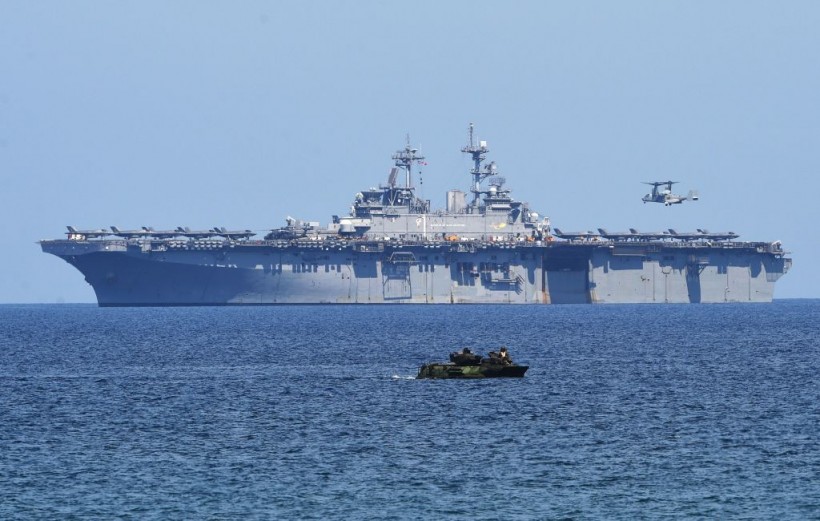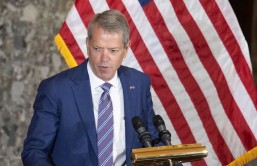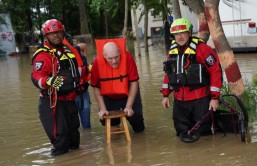
(Photo : TED ALJIBE/AFP via Getty Images)
A US Marine Amphibious Assault Vehicle (front) maneouvers as a V-22 Osprey prepares to land on the USS Wasp, US Navy multipurpose amphibious assault ship, during the amphibious landing exercises as part of the annual joint US-Philippines military exercise on the shores of San Antonio town, facing the South China sea, Zambales province on April 11, 2019.
Beijing rebuked the United States and Japan for "baselessly" maligning China during the first formal meeting between US President Joe Biden and Japanese Prime Minister Fumio Kishida, according to a spokesperson of the Chinese foreign ministry.
According to a White House statement, Biden and Kishida had a productive virtual meeting on Friday that covered in-depth discussions on various concerns, including China's military aggression on its neighboring countries. Kishida also expressed concern about Beijing's reportedly development of nuclear weapons.
In a media briefing on Monday, Zhao Lijian, a spokesperson at the Chinese foreign ministry, claimed that Biden and Kishida had "baselessly smeared and attacked" China and interfered with its "domestic affairs."
Zhao added that the US and Japan are exhibiting "Cold-War mentalities and inciting ideological antagonism," per US News.
US and Japan Team Up To Counter China's Military Aggression
In recent months, Beijing has increased military exercises near Taiwan as China claims the independent country as its territory, and it intends to take over by force if necessary, which concerns both US and Japan, per Al Jazeera.
Kishida is particularly concerned about China's expanding military presence in the South China Sea and the East China Sea, where Beijing claims a collection of uninhabited islets that Tokyo administers.
In response to the circumstances, the United States and Japan have re-evaluated their security strategy, with Tokyo substantially raising defense spending this year. The US has also stated its commitment to defend its allies in the Indo-Pacific region.
US Military Makes Its Presence in the South China Sea
On Monday, the US Department of Defense announced the entering of its two aircraft carrier groups in the disputed South China Sea, one of many areas of tension between the United States and China.
The carrier groups will conduct exercises to enhance readiness in battles such as anti-submarine warfare operations, air warfare operations, and maritime interdiction operations. The training will be conducted following international law in international waters, the US Department of Defense said.
The department said that the two U.S. Navy Carrier Strike Groups began operations in the South China Sea on Sunday, led by their flagships, the USS Carl Vinson and USS Abraham Lincoln.
According to Rear Admiral J.T. Anderson, commander of the strike group led by the USS Abraham Lincoln, such drills allow the US Navy to improve combat capability and serves as reassurance to allies of the US in the region, as well as exhibit "resolve as a Navy to ensure regional stability and counter malign influence."
The US Navy reported on Sunday that both carrier groups have been exercising with Japan's navy in the Philippine Sea, an area that includes waters to the east of Taiwan, per Reuters.
U.S. Navy ships routinely sail close to these islands to challenge the sovereignty assertions of China, which had built artificial islands in the contested waters.
China has yet to comment on the matter.
Related Article: Japan to Install Anti-Aircraft Missile Units in Ishigaki to Deter Chinese Incursions








